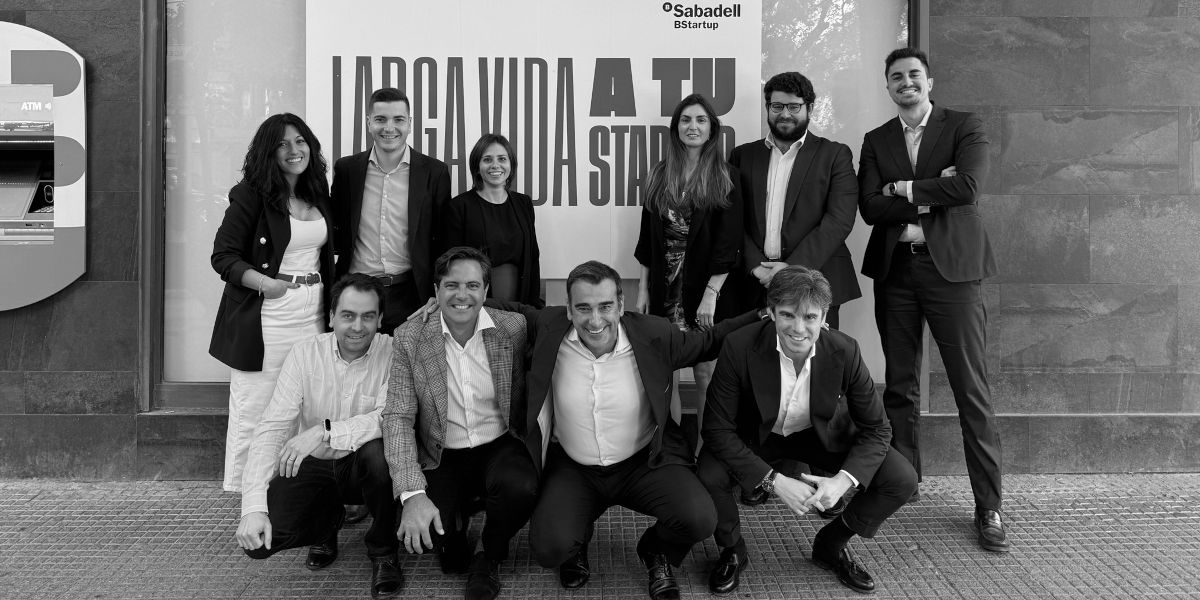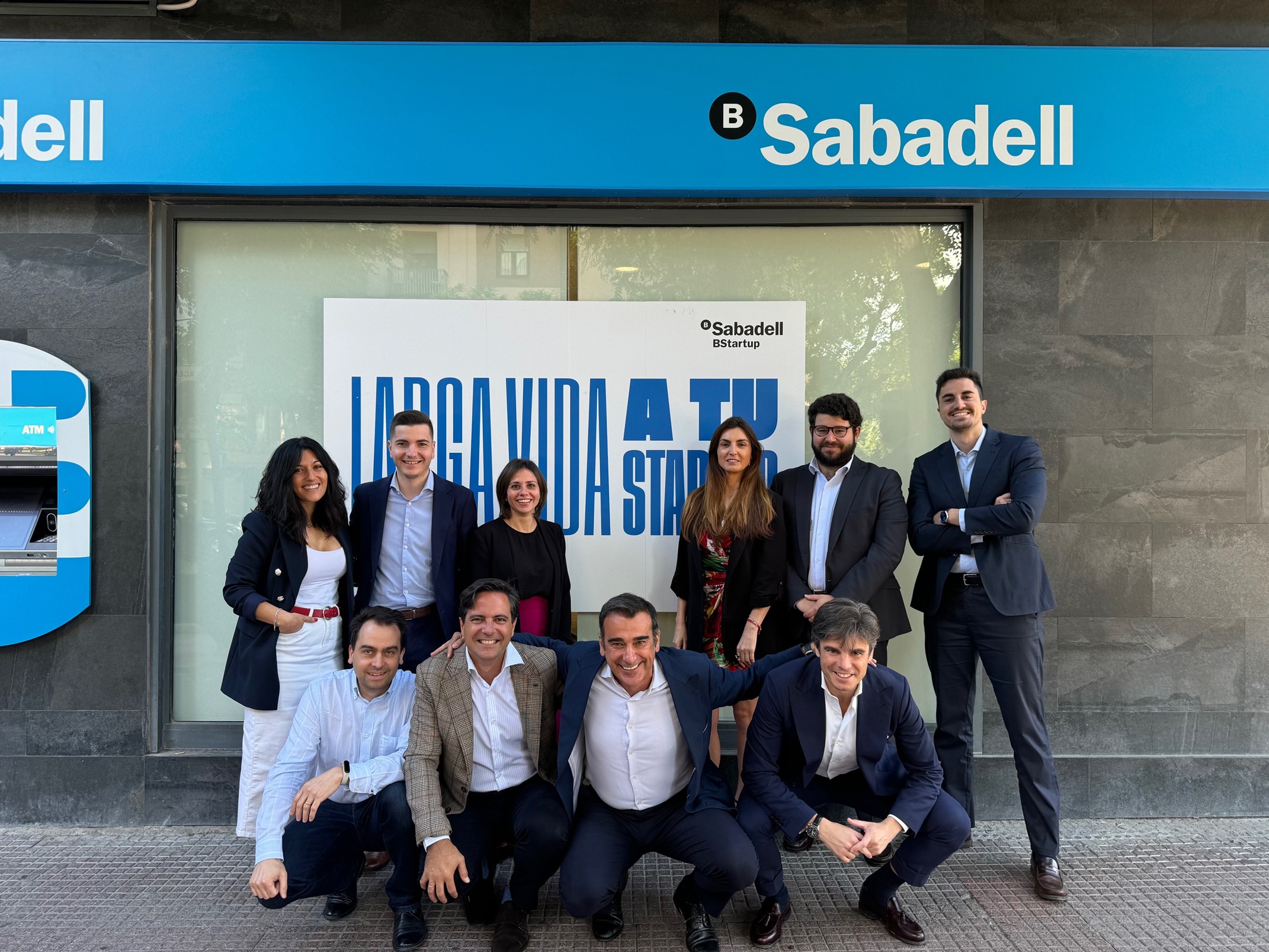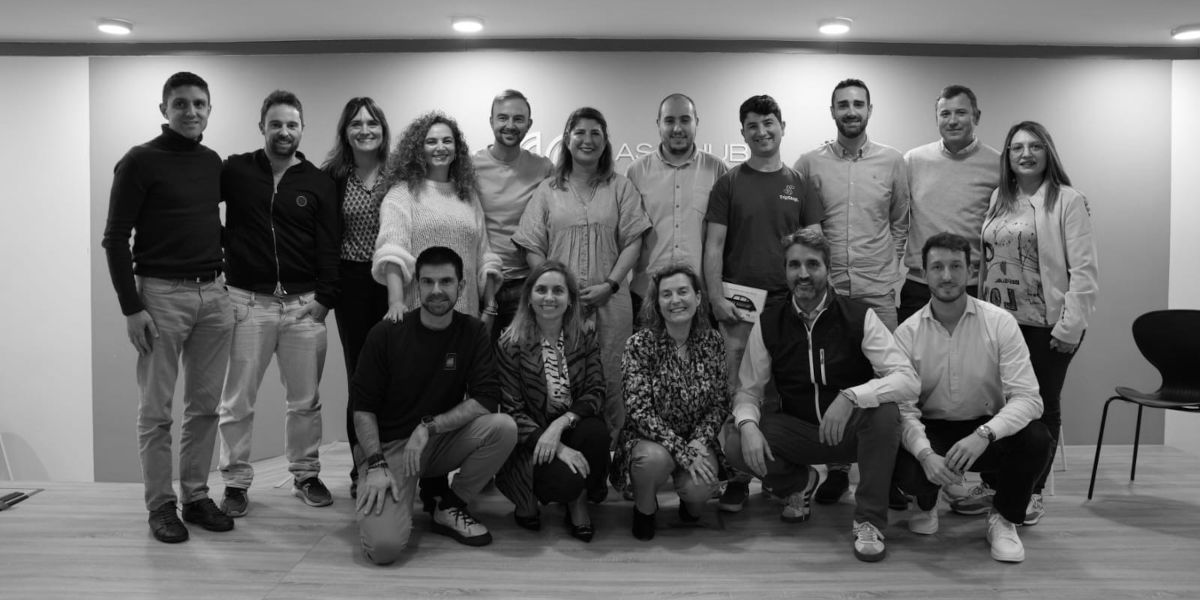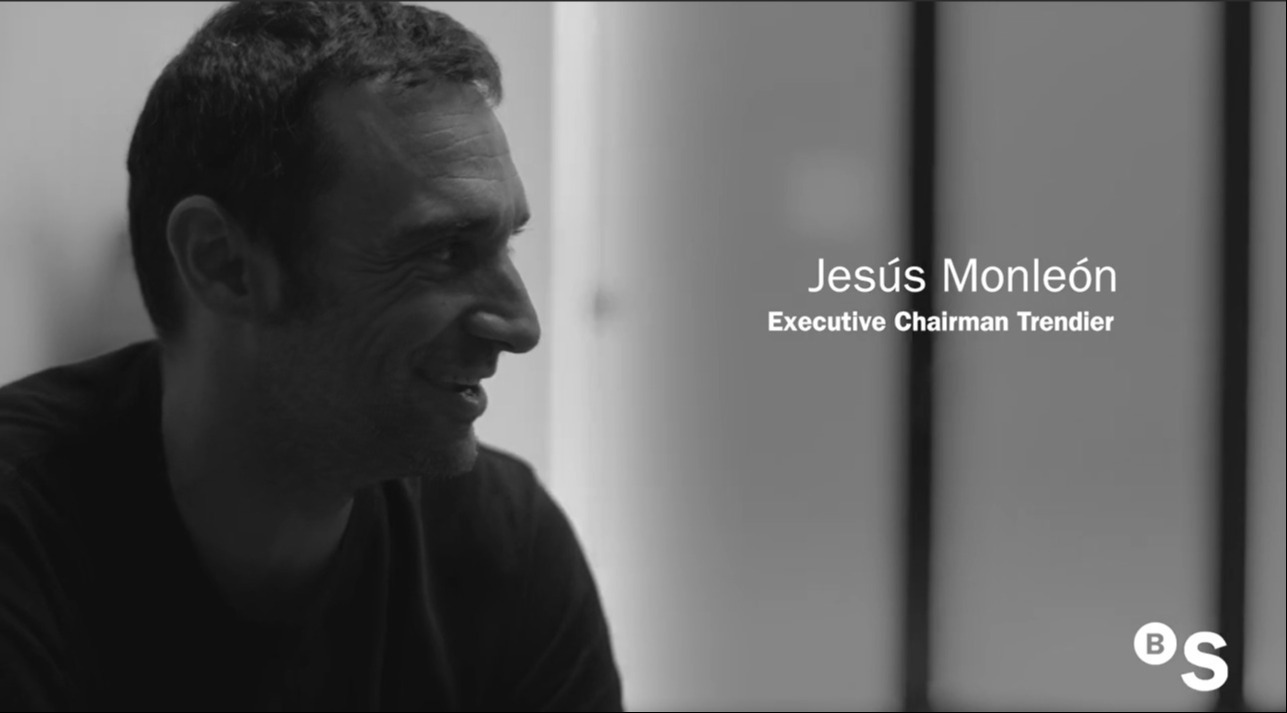
Round Seed, Series A, MVP, CAC, LTV, MRR, ARPU, cap table, deck, media for equity, warrants, bootstrapping… What our clients value most is that BStartup professionals speak their language and understand the financing needs of startups, different in many cases from traditional companies. The balance sheets and operating accounts of startups and scale ups have differential casuistics and need a very specialized analysis, in addition to a specific risk circuit, with 4 risk analysts dedicated 100% to startups.
BStartup currently has 23 managers dedicated exclusively to this type of clients in the main startup generation centers, plus 15 semi-specialized managers.
We wanted to talk to Josep Lucena, Sandra González and Fernando Angoso, pioneers in Spanish banking for startups and that among its functions is to analyze financing operations for Startups.
So the first question is clear: What financing needs do startups express to you and what solutions do you propose to them?
 Josep Lucena, BStartup Team Leader in Barcelona:
Startups may have diverse financing needs to drive business growth and maintain healthy finances, so it is important to offer the most attractive and efficient formulas to obtain the necessary resources. Non-dilutive bank financing can be a good ally to maintain a healthy cash flow while the company develops its growth strategies with financing formulas with higher risk appetite and expected returns such as equity capital or Venture Debt.
Josep Lucena, BStartup Team Leader in Barcelona:
Startups may have diverse financing needs to drive business growth and maintain healthy finances, so it is important to offer the most attractive and efficient formulas to obtain the necessary resources. Non-dilutive bank financing can be a good ally to maintain a healthy cash flow while the company develops its growth strategies with financing formulas with higher risk appetite and expected returns such as equity capital or Venture Debt.
 Sandra González, Enterprises Bank Manager BStartup Valencia:
Indeed, I would also add that in the case of startups and scaleups, a quick and personalized response from banks is essential. Startups need immediate access to financial resources to be able to scale quickly and not lose market opportunities. Bank debt, given its non-dilutive nature, is always one of the most demanded solutions. In this sense, we can classify them into different products, such as credit lines due to the freedom and flexibility they provide to meet the Working Capital, which in turn can be combined with working capital lines to finance payments (confirming) and collections (factoring). Short-term loans are also among the main financial demands of Startups because of their low cost, compared to Venture Debt, and because it is a solution that allows to stretch the Runway of the company without the need to go to investors.
Sandra González, Enterprises Bank Manager BStartup Valencia:
Indeed, I would also add that in the case of startups and scaleups, a quick and personalized response from banks is essential. Startups need immediate access to financial resources to be able to scale quickly and not lose market opportunities. Bank debt, given its non-dilutive nature, is always one of the most demanded solutions. In this sense, we can classify them into different products, such as credit lines due to the freedom and flexibility they provide to meet the Working Capital, which in turn can be combined with working capital lines to finance payments (confirming) and collections (factoring). Short-term loans are also among the main financial demands of Startups because of their low cost, compared to Venture Debt, and because it is a solution that allows to stretch the Runway of the company without the need to go to investors.
 Fernando Angoso, Team Leader BStartup Madrid:
The most suitable products for this type of company are short-term / working capital financing products, which help startups to bridge the gap between payments and collections.
Many of these companies have to meet most of their payments on demand (salaries and suppliers) and collections, depending on the business model, take time to arrive, causing cash flow tensions.
For this financing need, there are several products, depending on the amounts needed and the credit quality of both the startup and its customers, we try to define different financial products we work with and their “momentum”:
Fernando Angoso, Team Leader BStartup Madrid:
The most suitable products for this type of company are short-term / working capital financing products, which help startups to bridge the gap between payments and collections.
Many of these companies have to meet most of their payments on demand (salaries and suppliers) and collections, depending on the business model, take time to arrive, causing cash flow tensions.
For this financing need, there are several products, depending on the amounts needed and the credit quality of both the startup and its customers, we try to define different financial products we work with and their “momentum”:
 Josep Lucena, BStartup Team Leader in Barcelona:
Startups may have diverse financing needs to drive business growth and maintain healthy finances, so it is important to offer the most attractive and efficient formulas to obtain the necessary resources. Non-dilutive bank financing can be a good ally to maintain a healthy cash flow while the company develops its growth strategies with financing formulas with higher risk appetite and expected returns such as equity capital or Venture Debt.
Josep Lucena, BStartup Team Leader in Barcelona:
Startups may have diverse financing needs to drive business growth and maintain healthy finances, so it is important to offer the most attractive and efficient formulas to obtain the necessary resources. Non-dilutive bank financing can be a good ally to maintain a healthy cash flow while the company develops its growth strategies with financing formulas with higher risk appetite and expected returns such as equity capital or Venture Debt.
 Sandra González, Enterprises Bank Manager BStartup Valencia:
Indeed, I would also add that in the case of startups and scaleups, a quick and personalized response from banks is essential. Startups need immediate access to financial resources to be able to scale quickly and not lose market opportunities. Bank debt, given its non-dilutive nature, is always one of the most demanded solutions. In this sense, we can classify them into different products, such as credit lines due to the freedom and flexibility they provide to meet the Working Capital, which in turn can be combined with working capital lines to finance payments (confirming) and collections (factoring). Short-term loans are also among the main financial demands of Startups because of their low cost, compared to Venture Debt, and because it is a solution that allows to stretch the Runway of the company without the need to go to investors.
Sandra González, Enterprises Bank Manager BStartup Valencia:
Indeed, I would also add that in the case of startups and scaleups, a quick and personalized response from banks is essential. Startups need immediate access to financial resources to be able to scale quickly and not lose market opportunities. Bank debt, given its non-dilutive nature, is always one of the most demanded solutions. In this sense, we can classify them into different products, such as credit lines due to the freedom and flexibility they provide to meet the Working Capital, which in turn can be combined with working capital lines to finance payments (confirming) and collections (factoring). Short-term loans are also among the main financial demands of Startups because of their low cost, compared to Venture Debt, and because it is a solution that allows to stretch the Runway of the company without the need to go to investors.
 Fernando Angoso, Team Leader BStartup Madrid:
The most suitable products for this type of company are short-term / working capital financing products, which help startups to bridge the gap between payments and collections.
Many of these companies have to meet most of their payments on demand (salaries and suppliers) and collections, depending on the business model, take time to arrive, causing cash flow tensions.
For this financing need, there are several products, depending on the amounts needed and the credit quality of both the startup and its customers, we try to define different financial products we work with and their “momentum”:
Fernando Angoso, Team Leader BStartup Madrid:
The most suitable products for this type of company are short-term / working capital financing products, which help startups to bridge the gap between payments and collections.
Many of these companies have to meet most of their payments on demand (salaries and suppliers) and collections, depending on the business model, take time to arrive, causing cash flow tensions.
For this financing need, there are several products, depending on the amounts needed and the credit quality of both the startup and its customers, we try to define different financial products we work with and their “momentum”:
- Credit policy: It is proposed when liquidity needs are low and it is difficult to keep track of revenues and charges because they are small amounts.
- Confirming and confirming prompt payment: Multipurpose product for payment to suppliers, providing, depending on the type of confirming, financing to the supplier or to the startup.
- Factoring: A very useful product, when there are highly solvent clients and which allows for the possibility of advancing future collections.
- Renting: Although we tend to tend more to the short term, this is a solution for financing all types of equipment and machinery. It does not imply a greater debt in the balance sheet or in the cirbe.
- Venture Debt: Loan that is granted to projects in expansion phase, which due to the moment in which they are not able to access to a more traditional financing and of significant amounts due to risk. It is a mixed financing vehicle between non-dilutive financing and equity.


